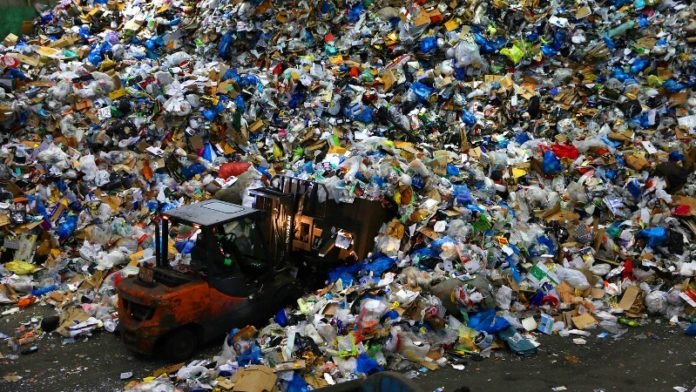With the ban on single-use plastic coming into force on July 1, the plastic straws that you use to sip juice and the small plastic spoons vendors outside your office stick into snacks will become a thing of the past.
While that’s bad news for plastics companies, it’s a boon for paper companies, as they will likely be called on to provide replacements. Investors have already recognised the immense opportunity and shares of such companies have risen. In the last six sessions, JK Paper is up 7 percent, Andhra Paper: 7 percent, West Coast Paper: 13 percent, Tamil Newsprint: 16 percent, Satia Industries: 12 percent, and Emami paper: 10 percent.
Analysts are being cautious, though they recognise the opportunity. They, however, believe that there are some applications where the paper industry can chip in, for instance supplying paper straws or wrappings.
From July 1, plastic that can be used just once will be banned because of the environmental damage it causes. This automatically proscribes items such as earbuds, balloon sticks, candy and ice-cream sticks, cutlery (plates, cups, glasses, forks, spoons, knives, trays), and wrappings around sweet boxes, invitation cards and cigarette packs, PVC banners under 100 microns and polystyrene for decoration.
This is not the first time such bans have been announced. However, the difference is that earlier, bans were announced at the market level, making enforcement difficult. This time the supply of raw materials to factories is being restricted.
Some companies, including FMCG giant Unilever and Nestle, which rely on single-use plastics extensively for packaging, have already committed to phase out and move towards recyclable plastics by 2025.
The government has said it is forming national and state-level control rooms to check the illegal manufacture, import, stocking, distribution, use, and sale of banned single-use plastic items.
Many cafes and restaurants have already shifted to paper straws, though adoption is still limited to high-end restaurants. For instance, Starbucks has done away with plastic straws. Dabur India says it has started providing paper straws with Real juice packs. Parle Agro, which makes Frooti, has started importing paper straws for its popular drink, which usually comes in a small tetra pack with a plastic straw.
Analysts say the industry size of single-use plastics is estimated to be Rs 10,000 crore. Per an estimate, India consumes about 6 billion plastic straws every year, and these will need to be replaced with paper straws.
AS Mehta, President & Director of JK Paper, said the company has already introduced many paper-based products, including paper straws and paper cups.
“A sizeable quantity has started moving. Paper bags are one category where there is huge demand … because they have replaced plastic bags,” he added. The company said it is also developing many more use-based products and will introduce them soon.
Amid the opportunity, there are worries over rising raw material costs for most paper mills. Prices of key raw materials such as pulp, chemicals, coal, furnace oil, and freight rates have surged, leading to input cost pressure.
“Pulp prices right now are at $950 per tonne, so paper prices should be $1,000 per tonne minimum,” Mehta of JK Paper. Coal prices hit an all-time high of about $435 per tonne in May, along with crude oil, which was trading close to $115 per barrel, much above historical average prices.
This is amid an expected rise in demand for paper from all quarters. New sessions at schools and colleges are set to begin and will fuel the demand for paper. Meanwhile, the plastic ban will only add to the demand.
Amid the high demand, paper mills have hiked prices to pass on soaring raw material costs, thus keeping their margins intact while shoring up revenue. Mills have instituted at least two hikes in the current year, with prices more than doubling from Rs 45-50 pre-covid to around Rs 100 now.
Industry executives don’t see prices coming down anytime soon unless raw material costs reduce. “As long as input costs remain at that level, paper prices will have low respite,” said Mehta
Most analysts and money managers are bullish on the paper industry. JK Paper is the top holding of some smallcap-focused portfolio management service (PMS) funds. Mutual funds hold nearly 9 percent of Andhra Paper — a third of the total public holding, as of the latest shareholding data.

